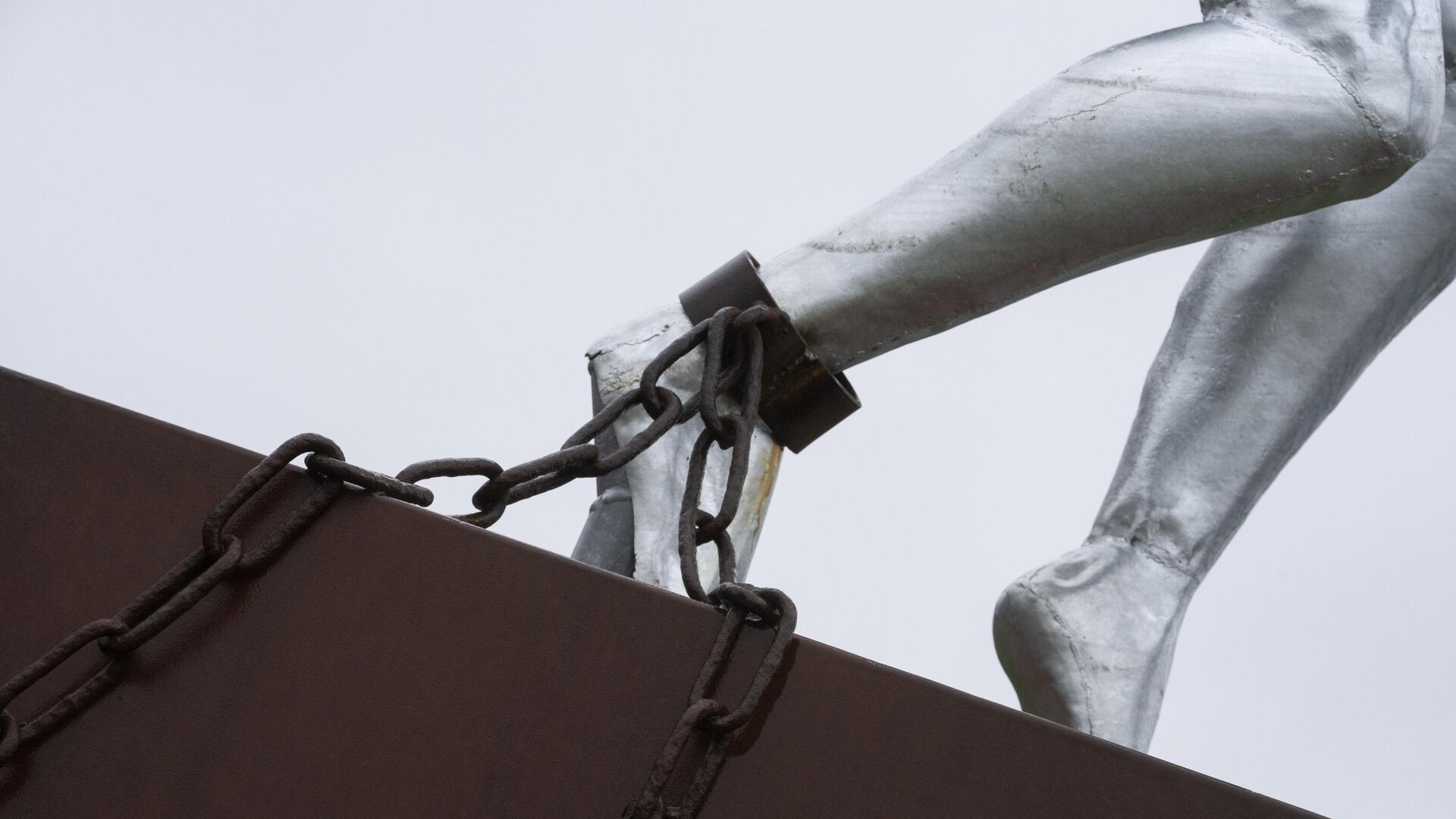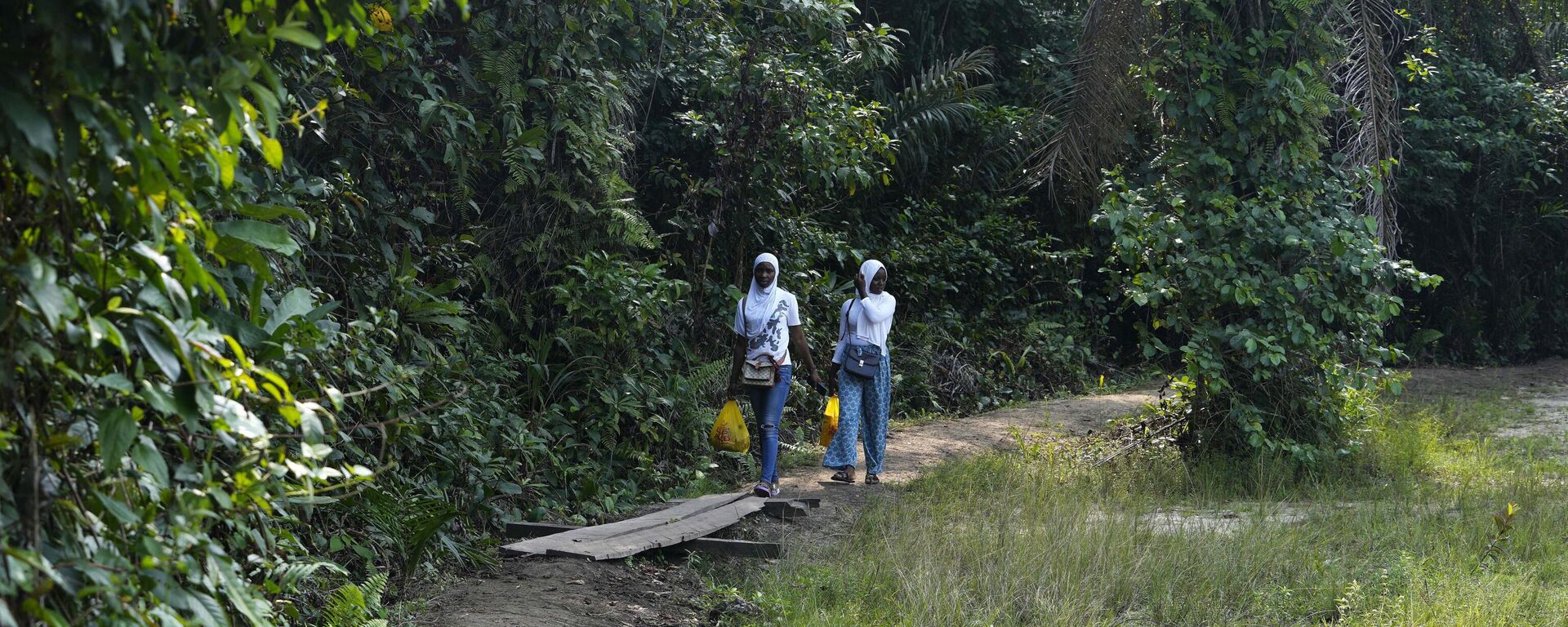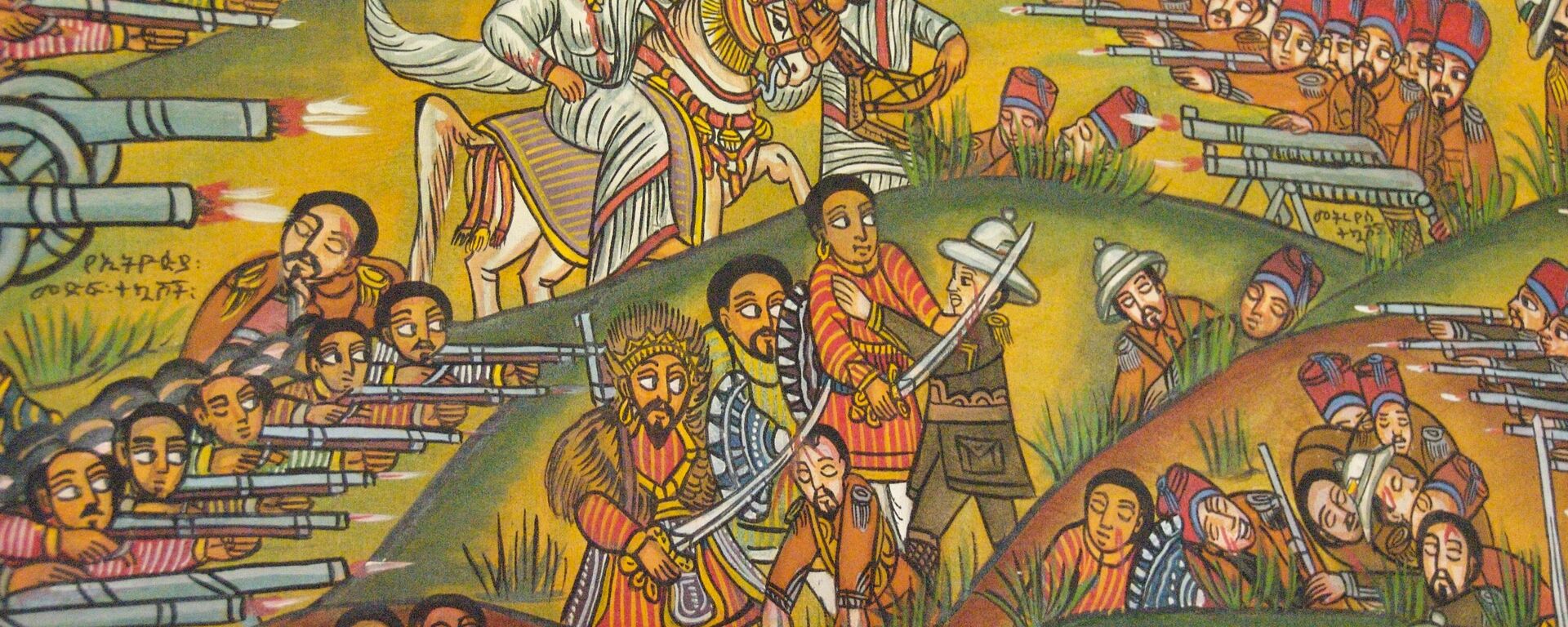https://sputnikglobe.com/20230325/recognition-of-european-enslavement-of-africans-should-go-beyond-rhetoric-experts-say-1108765397.html
Recognition of Europe's Crimes Should Go Beyond Rhetoric: Experts on Slave Trade Remembrance Day
Recognition of Europe's Crimes Should Go Beyond Rhetoric: Experts on Slave Trade Remembrance Day
Sputnik International
Between the 16th and the 19th centuries, millions of enslaved Africans were transoprted across the Atlantic Ocean to the Americas. On March 25, the world commemorates the victims of slavery and the transatlantic slave trade.
2023-03-25T09:34+0000
2023-03-25T09:34+0000
2023-03-25T13:29+0000
africa
slave labor
slave trade
slavery
colonialism
labour
south america
north america
colonial past
british colonialism
https://cdn1.img.sputnikglobe.com/img/07e7/03/19/1108778145_0:0:3073:1728_1920x0_80_0_0_786e989b5b51c8da36bcbacf3d88dfad.jpg
The annual International Day of Remembrance of the Victims of Slavery and the Transatlantic Slave Trade was proclaimed by United Nations General Assembly Resolution 62/122 in December 2007. Since then, on this day, the world remembers those who suffered and died as a result of slavery and the slave trade, raising awareness of the history of these phenomena and how they have impacted the modern world.One of the problems of the modern world is that there is a lot of rhetoric that in practice results in nothing but declarations of days in commemoration of victims, catchy slogans, or promises of reparations, says Prof. Sabelo J. Ndlovu-Gatsheni, a historian and decolonial/postcolonial theorist, professor, and chair of epistemologies of the Global South with emphasis on Africa at the University of Bayreuth, Germany, in an interview with Sputnik.According to Ndlovu-Gatsheni, people need material reparations that could "actually equalize society," and not symbolic proclamations. He states that the recognition of atrocities of the Europeans and the West in general, as well as slogans such as "we are standing on the land of the native people," evokes the following question: "after recognition, then what do you do?"Commenting on the historic phenomenon of the transatlantic slave trade, the professor expresses his dissatisfaction with the wording itself, as it doesn't reflect the real situation, underlining that it was "the European enslavement of African people."Background Story of 'European Inhumane Enterprise'This specific period in history is estimated to have started in the 16th century and lasted approximately until the middle of the 19th century. The transatlantic slave trade was part of the so-called triangular trade, in which European goods, mainly arms and textiles, were shipped to Africa, the continent's enslaved people to the Americas, while coffee and sugar from the latter were shipped to Europe. According to the Transatlantic Slave Trade Database, Africa lost more than 12.5 million people as a result of the transatlantic slave trade, while only 10.7 million slaves arrived in the Americas, while the rest perished on the voyage. Ndlovu-Gatsheni, further explaining his point of view, underscores that even by calling it "trade," people depoliticize it, avoiding calling things by their real names. He states that the slave trade was the process of dehumanization, which entailed "violence and disruption of African societies." This form of "the inhumane enterprise" that had an immense impact on Africa has a long history, and still continues in modern society, even though it is now "much more discrete and hidden," says Dr. Rasigan Maharajh, chief director at the Institute for Economic Research and Innovation at Tshwane University of Technology, South Africa. He explains that the slaves were indigenous people of Africa who were "captured and commodified in transactions with" the Europeans. This continuous flow from Africa to the Americas meant a massive depopulation that impacted numerous communities across the continent and set back its overall development, he underlines, noting that at the time, Africa's total population was less than 100 million people.The transatlantic slave trade "robbed" the continent's economies "of able-bodied men of working age, and women in their fertile years," echoes Roger Southall, emeritus professor in sociology, University of the Witwatersrand, South Africa. Moreover, he notes, the slave raids and export caused internal divisions and conflicts on the continent, "war between African societies." The main purpose of the slave trade was to provide cheap labor "for the growth of sugar" in the West Indies, he explains, and cotton in the south of United States for export to Europe, in particular to Britain. Southall states that there are theories arguing that slavery was fundamental to the creation of "modern capitalism in providing cheap goods and promoting markets." Talking about traditional forms of slavery that could have existed in Africa prior to the period of transatlantic trade, he states that domestic slavery practices were common in some African societies, but were different in nature from those brought about by "capitalism." In contrast to traditional African slavery, he explains, the form of slavery practiced by the West "commodified the slaves as labor, as units of cost and production, and represented their total dehumanization."Commenting on the issue of traditional African slavery, Dr. Maharajh, for his part, underscores that there is no evidence to support the notion that slavery was a common practice, and that it is hard to "clearly identify an aggregate African or European form in each category" of various form of unfree labor. Ndlovu-Gatsheni agrees with Maharajh's remarks, adding that there is no conflict between different forms of oppression, because the enslavement that occurred in Africa is specifically defined as "a particular race of people enslaving a particular race of people." He recalls that at the time, the humanity of black people was questioned in the West, as was the humanity of the native peoples in Latin America. There was an idea, he states, that all of them were "sub-human and therefore slaves by nature." Thus, it was a way to justify the Westerners' crimes against humanity and the enslavement that took place in various parts of the world. Legacy of Slave Trade: Racism, Colonialism, InequalityThe main impact of the transatlantic trade on African societies is that during that period, which lasted for over 400 years, the very idea of distinguishing "white people and black people" emerged, Ndlovu-Gatsheni explains. Apart from this, he notes, that there was "superiorization and inferiorization."The slave trade had far-reaching consequences for Africa and the world in general, echoes Maharajh, stressing that most of the injustices and socio-economic problems of the continent can to a certain extent be traced back to the transatlantic slavery industry. In particular, he points to the "underdevelopment, endemic corruption, and neo-colonial relations of unequal exchange" seen in many African nations. He also states that the profits derived form the transatlantic slave trade contributed to "the expansion of empires, and the imperial administrations," as well as boosted investments in the industrial development of Western Europe. Talking about the contribution of the slave trade to the emergence of colonial rule, Ndlovu-Gatsheni underlines that "we cannot make a distinction between enslavement and colonialism," as both of them are part of a greater structural change that goes "from racism, to enslavement, to colonialism to capitalism." The understanding of this connection, he notes, makes it clear why the Europeans turned to abolition or what "they call it emancipation," when those who were enslaved started to oppose it, making it "untenable to continue exploiting the labor." Thus, they started to initiate another form of enslavement – colonialism that enslaves the whole continent, he stresses. Apart from that, Maharajh also recalls that the abolition of slavery and the slave trade was unevenly legislated across the world. For example, he states, while the Convention to Suppress the Slave Trade and Slavery was framed in 1926, the US state of Mississippi "ratified the 13th amendment to their federal constitution in February 2013, just a decade ago."Southall, for his part, underlines that the abolition of the slave trade didn't mean "the end of the exploitation of slave labor." Abolitionists, many of whom were from the middle class, rarely treated Africans as equals, he explains, saying that they wanted to involve them in "what they called 'legitimate or free trade,' the production of goods such as cocoa and coffee."What if...? Obviously, something that has already happened can't be changed, but people still tend to speculate on this issue, putting forward their ideas of how events could have unfolded. Answering the question of how Africans could have been living today had the slave trade not occurred, Dr. Maharajh assumes that the continent's economy and demography "would undoubtedly look different." Southall also shares this point of view, saying that "without loss of so much productive labor power, internal development would have been more progressive." Dr. Maharajh further suggests that without unfree labor, the vast natural resources of Africa would have "propelled industrialization and widespread development," and the continent might have looked differently. Ndlovu-Gatsheni agrees that the demographic impact on Africa was very serious, stating that during the capture of people, a lot of conflicts were initiated that led to deaths, as well as disrupted social life. He points out that the slave trade "basically restructured the African societies and the economies, and it weakened them," as the most productive people were captured and sold to work in sugar and cotton plantations, and subsequently fuelled the development of the West.Attempts to 'Defend the Indefensible'According to Southall, when it comes to paying reparations or taking responsibility, there is always a lot of denial of accountability, as well as statements that modern states can't be held responsible for what happened in the past or that the impact of slavery is exaggerated. This appears as an attempt "to defend the indefensible actions of the past," he notes. Even though there is "no way that those who were enslaved can be compensated," as they are already gone, "we owe them their memory and their history." Therefore, he says, Africans can't afford the "sweetening of the bitter history," with the US and European countries trying to rewrite the past by whitewashing historical events in a bid to "to legitimate the illegitimate and iniquitous political economy arising from slavery and racial capitalism." Therefore, he underlines, there is a need for reparations to their descendants and the countries from where they were taken. At the same time, he emphasizes, in recent years there have been promising developments in Western countries, including "the rediscovery of slavery in popular thought." Moreover, he underlines that the battle to recall slavery and obtain reparations "needs to be fought globally," at the international, regional, and local levels. He notes that compensation should be aimed at the improvement of the quality of lives "of all of humanity, whilst focused on the specific locations of most need."Ndlovu-Gatsheni, for his part, explains that there is "a struggle for compensation," and a struggle to develop and restore historical justice. According to him, one of the demands from the people who were colonized or enslaved is "that there must be an acknowledgment of the retarding process that took place." Once Europe accepts the fact that it slowed the development of the enslaved communities, it will "actually carry the burden to pay reparation."He notes that the current global landscape, which is divided into two distinct groups, namely "geography of poverty, which is the Global South, and the geography of opulence, which is the Global North" is a direct result and product of slavery and colonialism. However, in modern realities, in the context of globalization and multipolar world, there must be joint action if people want to attain equality and a "common humanity."
https://sputnikglobe.com/20221204/modern-slavery-all-around-us-african-activists-experts-warn-1105020980.html
https://sputnikglobe.com/20221220/dutch-prime-minister-apologizes-for-nations-slave-trading-past-1105628026.html
https://sputnikglobe.com/20221105/wests-covert-influence-ops-in-africa-make-people-believe-theyre-on-their-own-analyst-says-1103806837.html
https://sputnikglobe.com/20230321/tanzanian-ecoactivist-enough-is-enough-with-wests-african-forest-exploitation-1108652803.html
https://sputnikglobe.com/20230301/battle-of-adwa-victory-over-european-supremacy-not-only-for-ethiopia-but-also-for-all-of-africa-1107897887.html
https://sputnikglobe.com/20221219/divide-et-impera-whats-really-behind-wests-repeated-failures-to-lift-africa-up-from-poverty-1105580254.html
https://sputnikglobe.com/20221230/development-innovation--economy-how-far-has-africa-progressed-in-2022---1105888945.html
https://sputnikglobe.com/20221219/wounds-of-the-past-berlin-to-return-looted-benin-bronzes-to-nigeria-1105577558.html
africa
south america
north america
Sputnik International
feedback@sputniknews.com
+74956456601
MIA „Rossiya Segodnya“
2023
News
en_EN
Sputnik International
feedback@sputniknews.com
+74956456601
MIA „Rossiya Segodnya“
Sputnik International
feedback@sputniknews.com
+74956456601
MIA „Rossiya Segodnya“
slavery victims day, slave trade, slavery reparations, europe africa, europe slave
slavery victims day, slave trade, slavery reparations, europe africa, europe slave
The annual International Day of Remembrance of the Victims of Slavery and the Transatlantic Slave Trade was proclaimed by United Nations General Assembly Resolution 62/122 in December 2007. Since then, on this day, the world remembers those who suffered and died as a result of slavery and the slave trade, raising awareness of the history of these phenomena and how they have impacted the modern world.
One of the problems of the modern world is that there is a lot of rhetoric that in practice results in nothing but declarations of days in commemoration of victims, catchy slogans, or promises of reparations, says Prof. Sabelo J. Ndlovu-Gatsheni, a historian and decolonial/postcolonial theorist, professor, and chair of epistemologies of the Global South with emphasis on Africa at the University of Bayreuth, Germany, in an interview with Sputnik.
According to Ndlovu-Gatsheni, people need material reparations that could "actually equalize society," and not symbolic proclamations. He states that the recognition of atrocities of the Europeans and the West in general, as well as slogans such as "we are standing on the land of the native people," evokes the following question: "after recognition, then what do you do?"
"So the issue is really these symbolics of declaring days and the recognition must be accompanied by practical reparation because we don't eat the days, we don't eat these declarations," he highlights.
Commenting on the historic phenomenon of the transatlantic slave trade, the professor expresses his dissatisfaction with the wording itself, as it doesn't reflect the real situation, underlining that
it was "the European enslavement of African people."

4 December 2022, 12:53 GMT
Background Story of 'European Inhumane Enterprise'
This specific period in history is estimated to have started in the 16th century and lasted approximately until the middle of the 19th century. The transatlantic slave trade was part of the so-called triangular trade, in which European goods, mainly arms and textiles, were shipped to Africa, the continent's enslaved people to the Americas, while coffee and sugar from the latter were shipped to Europe.
According to the Transatlantic Slave Trade Database, Africa lost more than 12.5 million people as a result of the transatlantic slave trade, while only 10.7 million slaves arrived in the Americas, while the rest perished on the voyage.
Ndlovu-Gatsheni, further explaining his point of view, underscores that even by calling it "trade," people depoliticize it, avoiding calling things by their real names. He states that the slave trade was the process of dehumanization, which
entailed "violence and disruption of African societies."
"Indeed, even to call it a 'trade' is to really depoliticize it and to avoid talking about the dehumanization of people and the thingification of people into commodities, who were then sold on the market. The first thing to underscore here is to rename what was taking place, so that we capture the essence of the dehumanization," he elaborates.
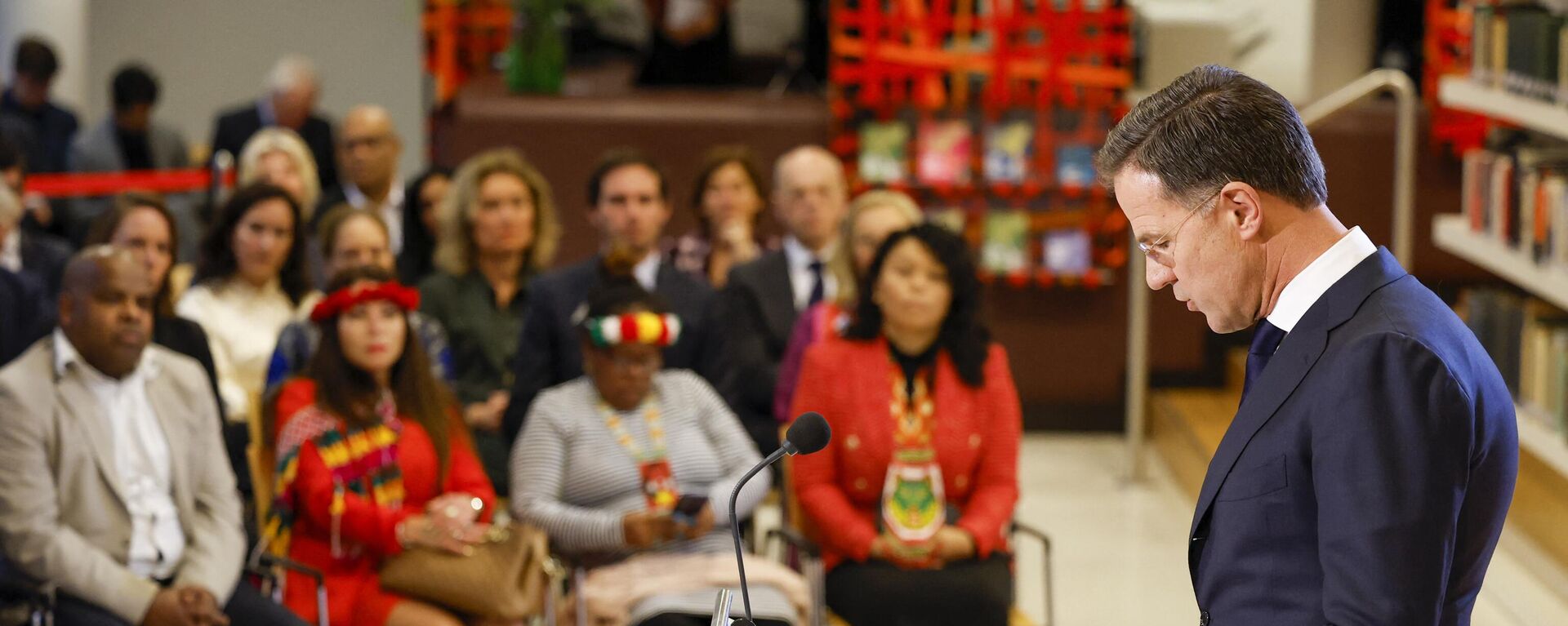
20 December 2022, 05:59 GMT
This form of "the inhumane enterprise" that had an immense impact on Africa has a long history, and still continues in modern society, even though it is now "much more discrete and hidden," says Dr. Rasigan Maharajh, chief director at the Institute for Economic Research and Innovation at Tshwane University of Technology, South Africa. He explains that the slaves were indigenous people of Africa who were "captured and commodified in transactions with" the Europeans.
"Deprived of intrinsic human rights, the bonded unfree laborers were transported as human cargo under despicable conditions across the Atlantic to work on lands expropriated from the indigenous peoples of the Americas," Dr. Maharajh states.
This continuous flow from Africa to the Americas meant a massive depopulation that impacted numerous communities across the continent and set back its overall development, he underlines, noting that at the time, Africa's total population was less than 100 million people.
The transatlantic slave trade "robbed" the continent's economies "of able-bodied men of working age, and women in their fertile years," echoes
Roger Southall, emeritus professor in sociology, University of the Witwatersrand, South Africa. Moreover, he notes, the slave raids and export
caused internal divisions and conflicts on the continent, "war between African societies."
The main purpose of the slave trade was to provide cheap labor "for the growth of sugar" in the West Indies, he explains, and cotton in the south of United States for export to Europe, in particular to Britain. Southall states that there are theories arguing that slavery was fundamental to the creation of "modern capitalism in providing cheap goods and promoting markets."
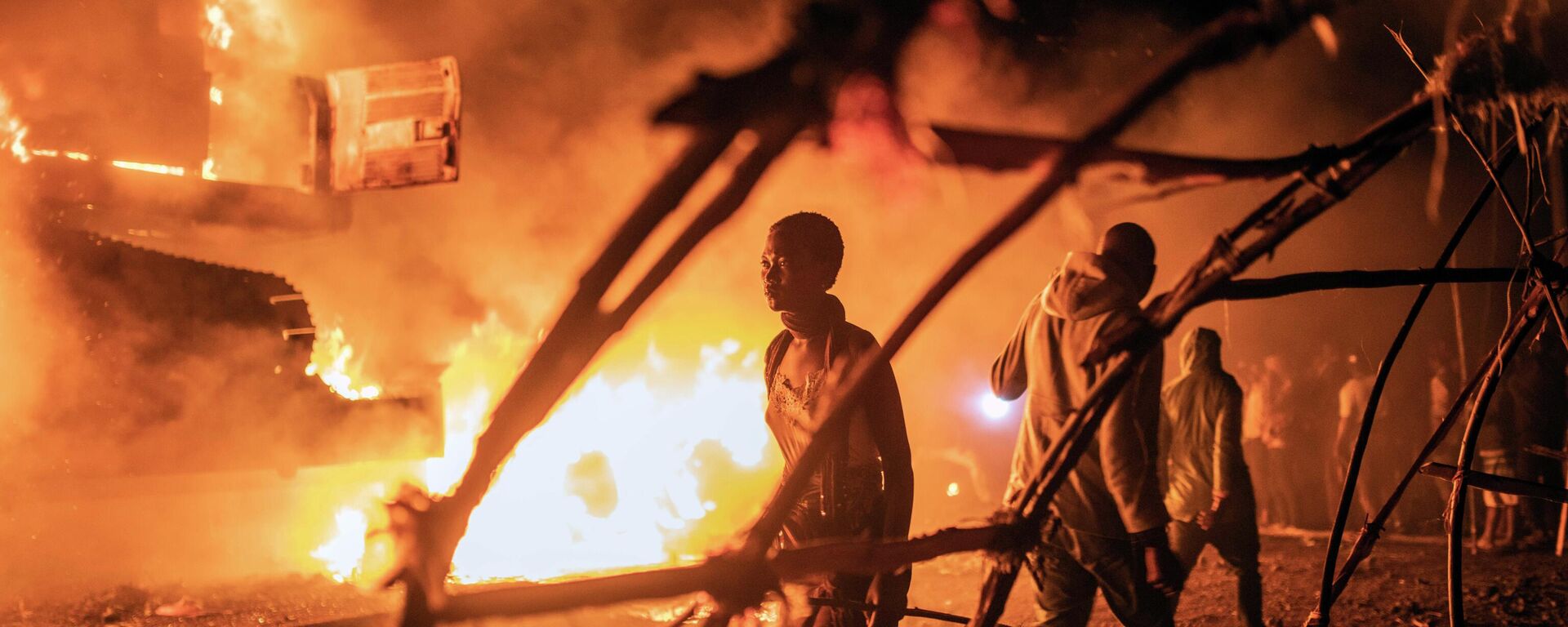
5 November 2022, 11:55 GMT
Talking about traditional forms of slavery that could have existed in Africa prior to the period of transatlantic trade, he states that domestic slavery practices were common in some African societies, but were different in nature from those brought about by "capitalism." In contrast to traditional African slavery, he explains, the form of slavery practiced by the West "commodified the slaves as labor, as units of cost and production, and represented their total dehumanization."
Commenting on the issue of traditional African slavery, Dr. Maharajh, for his part, underscores that there is no evidence to support the notion that slavery was a common practice, and that it is hard to "clearly identify an aggregate African or European form in each category" of various form of unfree labor.
"Rather, the advent of capitalist relations of production creatively destroyed the earlier incarnations of unfree labor which was replaced across world systems as wage-slavery of our contemporary conjuncture," he clarifies.
Ndlovu-Gatsheni agrees with Maharajh's remarks, adding that there is no conflict between different forms of oppression, because the enslavement that occurred in Africa is specifically defined as "a particular race of people enslaving a particular race of people." He recalls that at the time, the humanity of black people was questioned in the West, as was the humanity of the native peoples in Latin America. There was an idea, he states, that all of them were "sub-human and therefore slaves by nature." Thus, it was a way to justify the Westerners' crimes against humanity and the
enslavement that took place in various parts of the world.
Legacy of Slave Trade: Racism, Colonialism, Inequality
The main impact of the transatlantic trade on African societies is that during that period, which lasted for over 400 years, the very idea of distinguishing "white people and black people" emerged, Ndlovu-Gatsheni explains. Apart from this, he notes, that there was "superiorization and inferiorization."
"The superior people would be ones who were called Europeans and white, and the inferiorized were those who were named just 'black' and the 'native,'" the professor says.
The slave trade had far-reaching consequences for Africa and the world in general, echoes Maharajh, stressing that most of the injustices and socio-economic problems of the continent can to a certain extent be traced back to the transatlantic slavery industry. In particular, he points to the "underdevelopment, endemic corruption, and neo-colonial relations of unequal exchange" seen in many African nations.
He also states that the profits derived form the transatlantic slave trade contributed to "the expansion of empires, and the imperial administrations," as well as boosted investments in the industrial development of Western Europe.
"It is therefore unsurprising that it is the colonial powers whose metropoles were located in Western Europe that incorporated all of the territories of world systems into a globalized structure premised on inequality and exploitation of the periphery," Maharajh says.
Talking about the contribution of the slave trade to the emergence of colonial rule, Ndlovu-Gatsheni underlines that "we cannot make a distinction between enslavement and colonialism," as both of them are part of a greater structural change that
goes "from racism, to enslavement, to colonialism to capitalism."
The understanding of this connection, he notes, makes it clear why the Europeans turned to abolition or what "they call it emancipation," when those who were enslaved started to oppose it, making it "untenable to continue exploiting the labor." Thus, they started to initiate another form of enslavement – colonialism that enslaves the whole continent, he stresses.
"And the logic that you see, [...] there were plantations in the New World, now we are making the whole of Africa a plantation. In other words, we are now colonizing everyone. You are no longer just picking these ones whom you take outside. You are now enslaving almost everyone. Colonialism is a form of enslavement of the whole population," Ndlovu-Gatsheni says, commenting on the nature of colonial rule.
Apart from that, Maharajh also recalls that the abolition of slavery and the slave trade was unevenly legislated across the world. For example, he states, while the Convention to Suppress the Slave Trade and Slavery was framed in 1926, the US state of Mississippi "ratified the 13th amendment to their federal constitution in February 2013, just a decade ago."
Southall, for his part, underlines that the abolition of the slave trade didn't mean "the end of the exploitation of slave labor." Abolitionists, many of whom were from the middle class, rarely treated Africans as equals, he explains, saying that they wanted to involve them in "what they called 'legitimate or free trade,' the production of goods such as cocoa and coffee."
"The need for ‘free labor’ following the abolition of slavery provided a major impetus to the colonization of African societies," Southall emphasizes.
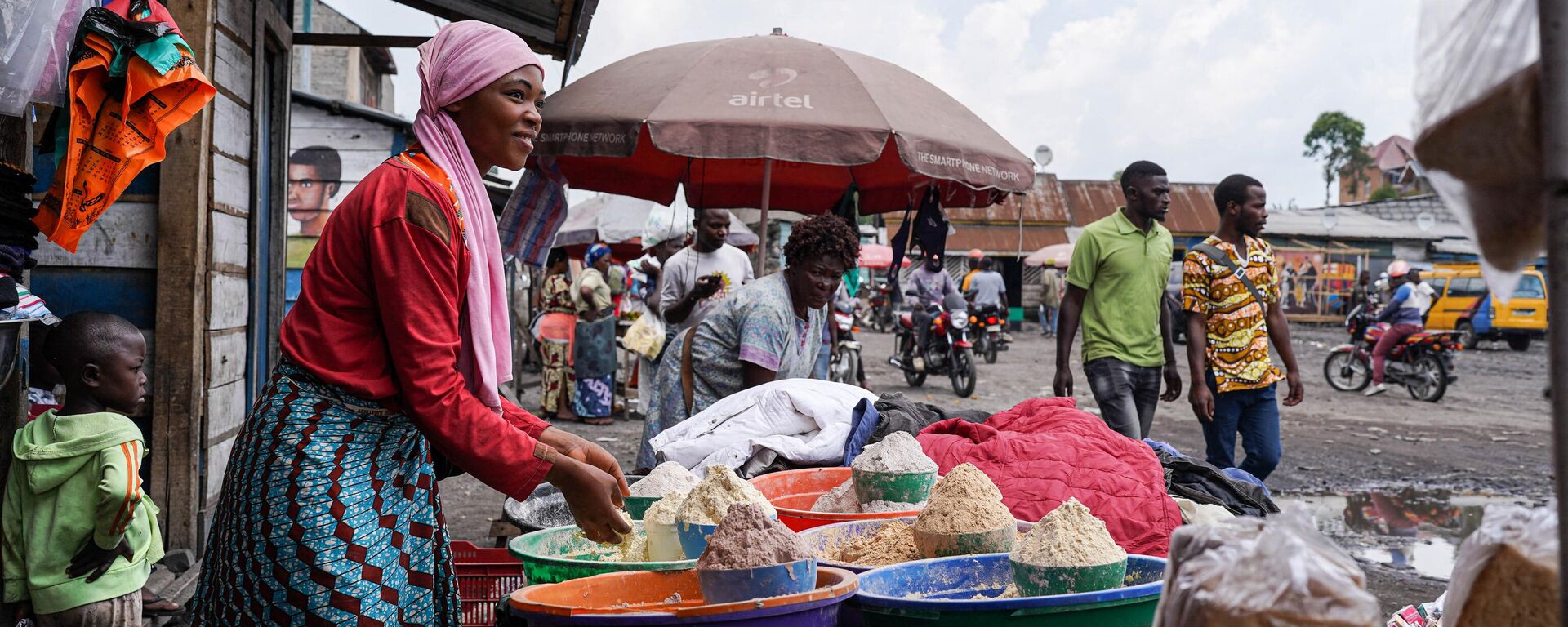
19 December 2022, 10:46 GMT
Obviously, something that has already happened can't be changed, but people still tend to speculate on this issue, putting forward their ideas of how events could have unfolded. Answering the question of how Africans could have been living today had the slave trade not occurred, Dr. Maharajh assumes that the continent's economy and demography "would undoubtedly look different."
Southall also shares this point of view, saying that "without loss of so much productive labor power, internal development would have been more progressive."
Dr. Maharajh further suggests that without unfree labor, the vast natural resources of Africa would have "propelled industrialization and widespread development," and the continent might have looked differently.
"The corporate state capture of territories in Africa by Western Europe would have been stymied and the consequences of combined yet uneven development would not be as stark as represented in current data on gross geographic production, indebtedness, and corruption," he assumes.
Ndlovu-Gatsheni agrees that the demographic impact on Africa was very serious, stating that during the capture of people, a lot of conflicts were initiated that led to deaths, as well as disrupted social life. He points out that the slave trade "basically restructured the African societies and the economies, and
it weakened them," as the most productive people were captured and sold to work in sugar and cotton plantations, and subsequently fuelled the development of the West.
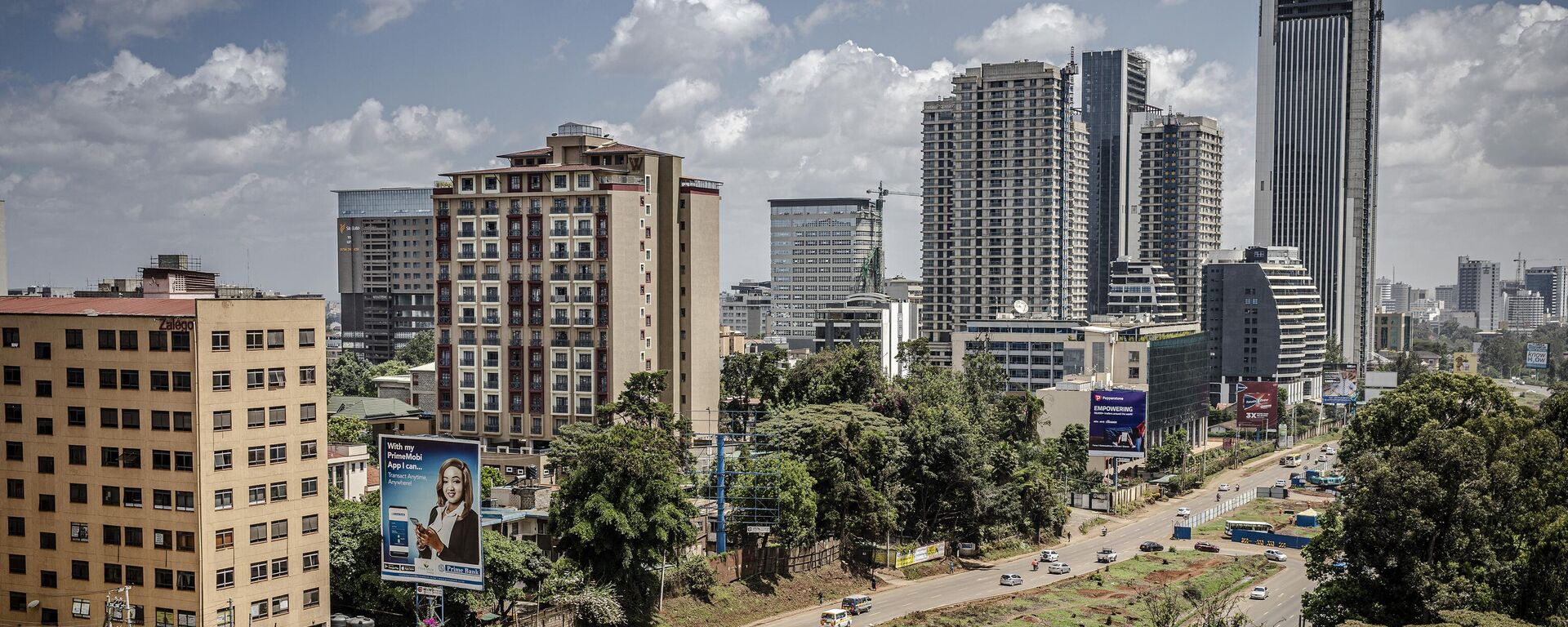
30 December 2022, 14:24 GMT
Attempts to 'Defend the Indefensible'
According to Southall, when it comes to paying reparations or taking responsibility, there is always a lot of denial of accountability, as well as statements that modern states can't be held responsible for what happened in the past or that the impact of slavery is exaggerated. This appears as an attempt "to defend the indefensible actions of the past," he notes.
Even though there is "no way that those who were enslaved can be compensated," as they are already gone, "we owe them their memory and their history." Therefore, he says, Africans can't afford the "sweetening of the bitter history," with the US and European countries trying to
rewrite the past by whitewashing historical events in a bid to "to legitimate the illegitimate and iniquitous political economy arising from slavery and racial capitalism."
Therefore, he underlines, there is a need for reparations to their descendants and the countries from where they were taken.
At the same time, he emphasizes, in recent years there have been promising developments in Western countries, including "the rediscovery of slavery in popular thought."
"In turn, such developments are fueling the demands for reparations: these include demands that the artefacts seized by colonial powers from their former colonies be returned to their rightful owners," he says.
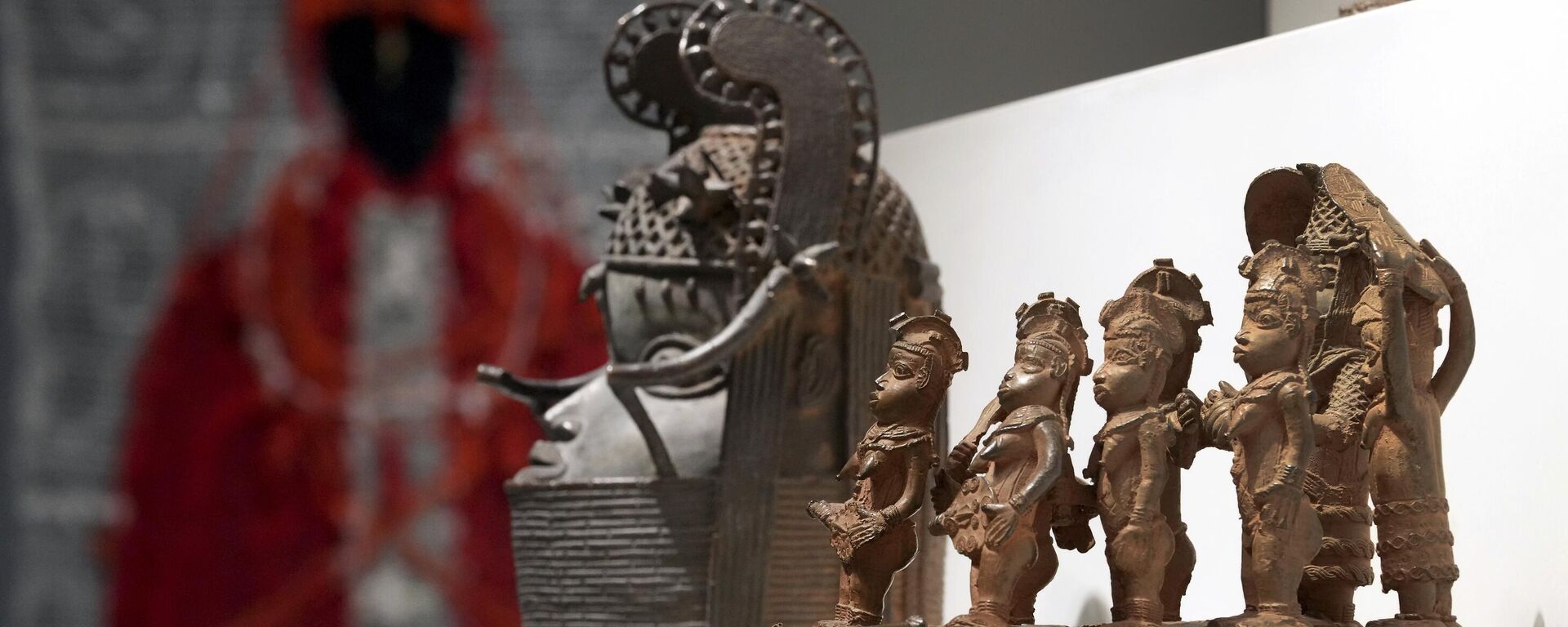
19 December 2022, 08:01 GMT
Moreover, he underlines that the battle to recall slavery and obtain reparations "needs to be fought globally," at the international, regional, and local levels. He notes that compensation should be aimed at the improvement of the quality of lives "of all of humanity, whilst focused on the specific locations of most need."
Ndlovu-Gatsheni, for his part, explains that there is "a struggle for compensation," and a struggle to develop and restore historical justice. According to him, one of the demands from the people who were colonized or enslaved is "that there must be an acknowledgment of the retarding process that took place." Once Europe accepts the fact that it slowed the development of the enslaved communities, it will "actually carry
the burden to pay reparation."
He notes that the current global landscape, which is divided into two distinct groups, namely "geography of poverty, which is the Global South, and the geography of opulence, which is the Global North" is a direct result and product of slavery and colonialism. However, in modern realities, in the context of globalization and multipolar world, there must be joint action if people want to attain equality and a "common humanity."
"There is now more evidence to show that we stay on one planet, whether [...] you are African, you are Asian or you are white, we cannot leave some with nothing and others with everything," he concludes.
